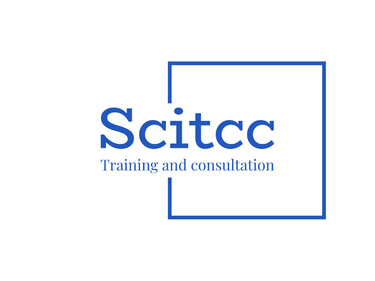
Digital Transformation of Governments: Strategies for Modern Governance
Leveraging Digital Tools for Efficient, Transparent, and Citizen-Centric Public Sector Governance
$5500.00
Digital Transformation of Governments: Strategies for Modern Governance - 5-Day Executive Training Course
Leading E-Government Excellence Across Saudi Arabia, Oman, and the GCC Region
As Gulf Cooperation Council (GCC) nations accelerate their digital government initiatives, the demand for skilled leaders who can navigate complex digital transformation journeys has never been greater. This specialized 5-day Digital Government training course prepares senior officials, IT leaders, and public sector executives in Saudi Arabia (KSA), Oman, UAE, Kuwait, Bahrain, and Qatar to lead successful e-government initiatives aligned with national visions and global best practices.
With Saudi Vision 2030, Oman Vision 2040, and comprehensive digitalization strategies across the GCC, governments are reimagining public services, operational efficiency, and citizen engagement. This intensive program provides the strategic frameworks, technical insights, and implementation methodologies essential for driving meaningful digital transformation in Middle Eastern government entities.
Course Overview: Digital Government Transformation
This comprehensive training combines e-government strategy, digital innovation, change management, and emerging technologies to equip public sector leaders with skills needed to modernize government operations. Through regional case studies, hands-on workshops, and expert-led sessions, participants will master the complexities of transforming traditional government structures into agile, citizen-centric digital organizations.
Target Audience: Government CIOs, IT directors, digital transformation officers, senior ministry officials, e-government program managers, public sector innovation leaders, and municipal executives across Saudi Arabia, Oman, and GCC countries.
Training Venues: Riyadh, Jeddah, Dammam, Makkah, Madinah, Muscat, Salalah, Dubai, Abu Dhabi, Doha, Manama, and Kuwait City. Government-specific virtual delivery available.
Day 1: Digital Government Foundations and Strategic Planning
Morning Session: Understanding Digital Government Transformation
Digital Government Evolution: From e-government to digital government in the GCC context
Global Digital Government Trends: Lessons from leading nations (Estonia, Singapore, UAE, South Korea)
Saudi Arabia’s Digital Initiatives: National Digital Transformation Program, YESSER, Etimad, and Vision 2030 digital objectives
Oman’s Digital Strategy: Oman Digital Society initiative, e-government authority, and Vision 2040 technology goals
GCC Digital Government Landscape: Comparative analysis of UAE Government Accelerators, Bahrain eGovernment, Qatar Smart Government, and Kuwait Digital Transformation
Digital Maturity Assessment: Evaluating current organizational digital capabilities
Afternoon Session: Strategic Planning for Digital Transformation
Vision and Mission Development: Aligning digital strategy with national transformation agendas
Stakeholder Analysis: Mapping citizens, businesses, government entities, and international partners
Digital Strategy Frameworks: Developing comprehensive roadmaps for government digitalization
Governance Models: Establishing digital transformation committees, steering groups, and accountability structures
Resource Planning: Budget allocation, talent acquisition, and technology investment priorities
Success Metrics: Defining KPIs for digital government initiatives (citizen satisfaction, service efficiency, cost reduction)
Workshop Activity: Participants develop digital transformation vision statements and preliminary strategies for their government entities.
Case Study: Examining Saudi Arabia’s ABSHER platform and Oman’s unified government services portal success factors.
Day 2: Citizen-Centric Service Design and Delivery
Morning Session: Digital Service Design Principles
Citizen Experience (CX) in Government: Understanding user needs across diverse Saudi, Omani, and GCC populations
Service Design Thinking: Applying human-centered design to government services
Journey Mapping: Visualizing citizen interactions across multiple touchpoints
Accessibility Standards: Ensuring inclusive design for all citizens including elderly, persons with disabilities
Multichannel Service Delivery: Integrating online portals, mobile apps, service centers, and kiosks
User Research Methods: Conducting effective research within government constraints and cultural contexts
Afternoon Session: E-Services Implementation
Government Service Platforms: Building unified portals for Saudi, Omani, and Gulf government services
Mobile Government (M-Government): Developing mobile-first strategies for high smartphone penetration markets
Self-Service Capabilities: Empowering citizens through automated transactions and information access
Service Integration: Connecting multiple government entities for seamless citizen experiences
Digital Identity Systems: Implementing secure authentication (Nafath in Saudi Arabia, Oman National ID)
Payment Gateway Integration: Enabling secure online payments for government services
Hands-On Exercise: Teams redesign existing government services using citizen-centric design principles and create service blueprints.
Best Practice Review: Analyzing successful implementations like Saudi Arabia’s Absher, UAE’s Smart Dubai, and Oman’s Invest Easy platforms.
Day 3: Emerging Technologies for Government Innovation
Morning Session: Advanced Technologies in Government
Artificial Intelligence (AI) in Government: Chatbots, predictive analytics, and automated decision-making for GCC public services
Blockchain for Government: Secure records management, smart contracts, and transparent transactions
Internet of Things (IoT): Smart cities, infrastructure monitoring, and environmental sensing in Saudi Arabia and Oman
Big Data Analytics: Leveraging data for policy-making, service optimization, and fraud detection
Cloud Computing: Strategies for secure cloud adoption in government (STC Cloud, AWS Bahrain, Azure UAE regions)
Cybersecurity Imperatives: Protecting critical government infrastructure and citizen data in accordance with Saudi NDMO, Oman NCSI standards
Afternoon Session: Smart Government Applications
Smart City Initiatives: NEOM, The Line, Muscat Smart City, Dubai Smart City frameworks
GovTech Ecosystem: Collaborating with technology providers, startups, and innovation hubs
Automation and RPA: Robotic Process Automation for administrative efficiency in Gulf government operations
Open Data Initiatives: Transparency, innovation enablement, and economic development through data sharing
Digital Twins: Virtual modeling of cities, infrastructure, and government operations
5G and Future Connectivity: Preparing for next-generation network capabilities in GCC nations
Technology Lab: Participants explore AI-powered government service prototypes, blockchain applications, and smart city dashboards.
Panel Discussion: Technology leaders from Saudi SDAIA, Oman ICT Group, and regional GovTech companies share implementation insights.
Day 4: Change Management and Digital Culture
Morning Session: Leading Digital Transformation in Government
Change Management in Public Sector: Adapting models for hierarchical GCC government structures
Digital Leadership Competencies: Skills required for leading transformation in Saudi, Omani, and Gulf ministries
Stakeholder Engagement: Managing ministers, senior officials, employees, citizens, and external partners
Communication Strategies: Building awareness, support, and enthusiasm for digital initiatives
Resistance Management: Addressing concerns, cultural barriers, and fear of technology adoption
Coalition Building: Creating networks of digital champions across government entities
Afternoon Session: Building Digital Capabilities
Workforce Digital Transformation: Upskilling and reskilling government employees for digital era
Digital Culture Development: Fostering innovation, agility, and citizen-centricity in public organizations
Talent Acquisition: Attracting technology professionals to government service in competitive GCC markets
Saudization and Omanization: Developing local digital talent aligned with nationalization policies
Public-Private Partnerships: Leveraging private sector expertise while maintaining government accountability
Knowledge Management: Capturing, sharing, and institutionalizing digital transformation learning
Interactive Workshop: Participants develop comprehensive change management plans addressing specific challenges in their government organizations.
Role-Playing Exercise: Navigating difficult stakeholder conversations about digital transformation initiatives.
Day 5: Implementation, Governance, and Sustainability
Morning Session: Program Management and Execution
Digital Transformation Program Structure: PMO setup, project prioritization, and portfolio management
Agile Government: Implementing iterative, flexible approaches in public sector contexts
Procurement and Vendor Management: Navigating government procurement regulations in Saudi Arabia, Oman, and GCC for technology acquisitions
Risk Management: Identifying, assessing, and mitigating digital transformation risks
Quality Assurance: Testing, validation, and continuous improvement of digital services
Budget Management: Optimizing investments and demonstrating return on investment to stakeholders
Afternoon Session: Governance, Policy, and Sustainability
Digital Government Policy Frameworks: Developing regulations, standards, and guidelines
Data Governance: Ensuring data quality, privacy, and ethical use in government operations
Interoperability Standards: Enabling data and service integration across GCC government entities
Compliance and Regulation: Adhering to Saudi Cybersecurity Framework, Oman Data Protection Law, GDPR, and regional regulations
Performance Measurement: Monitoring outcomes, citizen satisfaction, and operational efficiency
Continuous Innovation: Establishing mechanisms for ongoing digital evolution beyond initial transformation
Final Integration Session: Action Planning and Roadmap Development
Organizational Readiness Assessment: Evaluating capacity for digital transformation initiatives
12-Month Implementation Roadmap: Phased approach with quick wins and strategic initiatives
Resource Mobilization Plan: Securing budget, talent, and technology partnerships
Stakeholder Engagement Strategy: Communication and involvement plans for successful adoption
Risk Mitigation Strategies: Contingency planning for common implementation challenges
Success Metrics Dashboard: Defining and tracking transformation KPIs
Capstone Project Presentations: Participants present comprehensive digital transformation strategies for their government entities, receiving expert feedback and peer insights.
Certification Award Ceremony: Recognizing completion and commitment to digital government excellence.
Key Learning Outcomes
Upon completing this Digital Government Transformation training in Saudi Arabia, Oman, and the GCC, participants will be able to:
✓ Develop comprehensive digital government strategies aligned with national visions
✓ Design and implement citizen-centric e-services that improve satisfaction and efficiency
✓ Leverage emerging technologies (AI, blockchain, IoT) for government innovation
✓ Lead organizational change in complex public sector environments
✓ Establish robust governance frameworks for sustainable digital transformation
✓ Navigate GCC-specific challenges including cultural, regulatory, and technical considerations
✓ Measure and communicate success to government leadership and stakeholders
Program Differentiators
✓ GCC Government Focus: Tailored specifically for Saudi, Omani, and Gulf public sector contexts
✓ Expert Faculty: International digital government consultants and regional transformation leaders
✓ Practical Frameworks: Ready-to-implement strategies, templates, and toolkits
✓ Regional Case Studies: Learning from successful GCC digital government initiatives
✓ Peer Networking: Connect with digital leaders across Middle Eastern government entities
✓ Government-Specific Content: Addressing unique public sector constraints and opportunities
✓ Post-Training Consultation: 60-day expert support for implementation questions
Registration Information
Duration: 5 days (40 training hours)
Investment: Government group rates and inter-ministry discounts available
Languages: English and Arabic with bilingual materials
Certification: Executive Digital Government Transformation Certificate
Format: Interactive lectures, workshops, case studies, and hands-on exercises
Materials: Comprehensive digital toolkit including frameworks, templates, and implementation guides
Lead your government entity into the digital future. Enroll now in the premier digital government transformation training for Saudi Arabia, Oman, and the GCC region.


